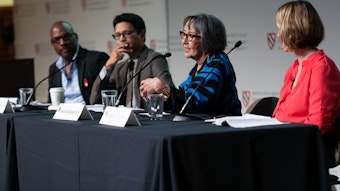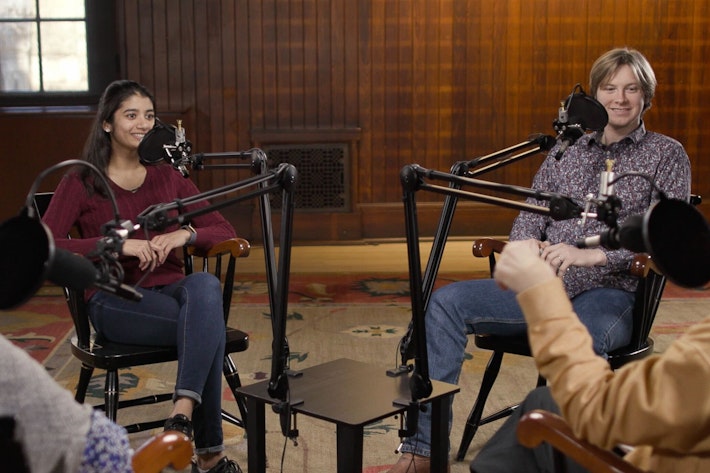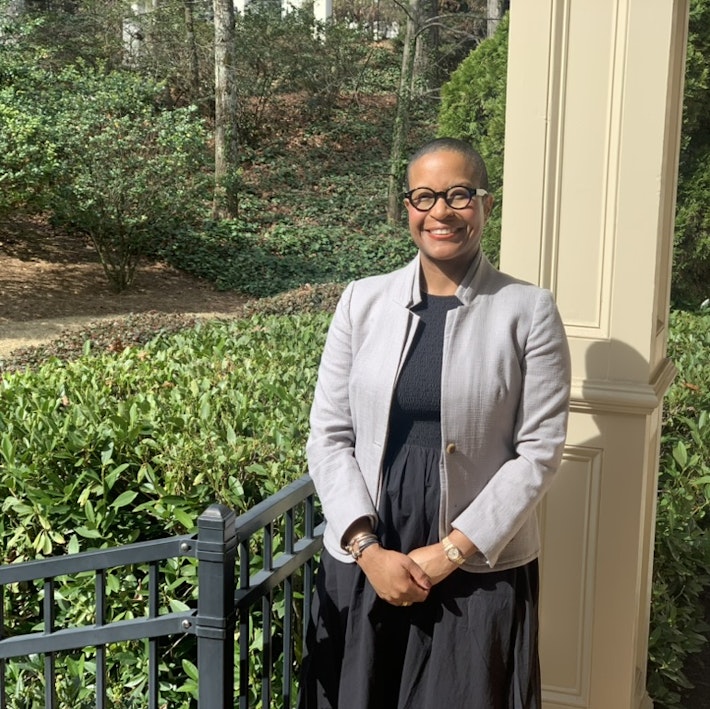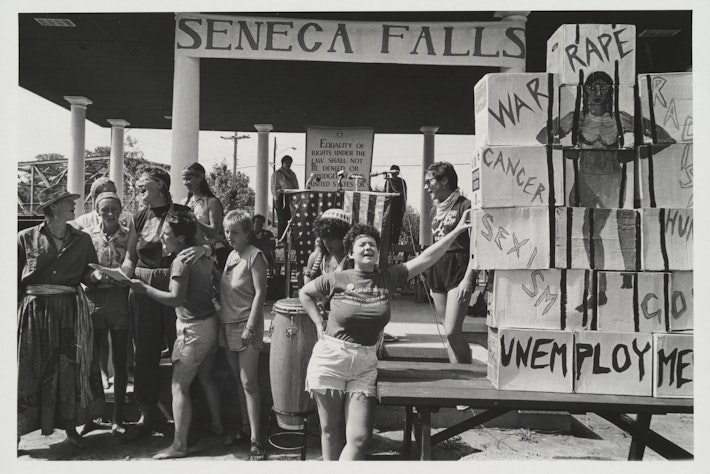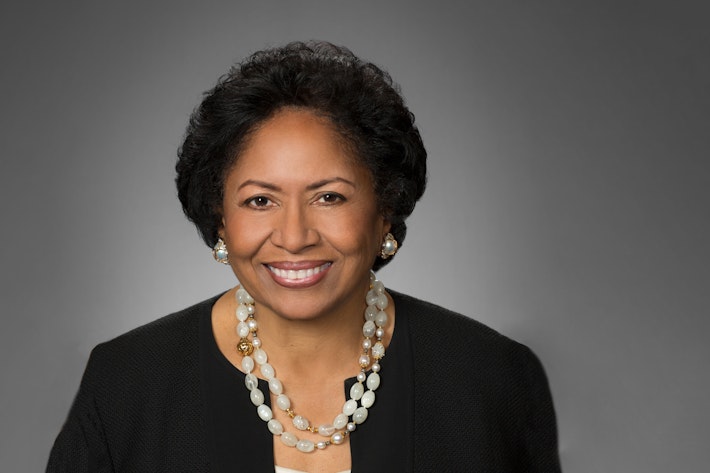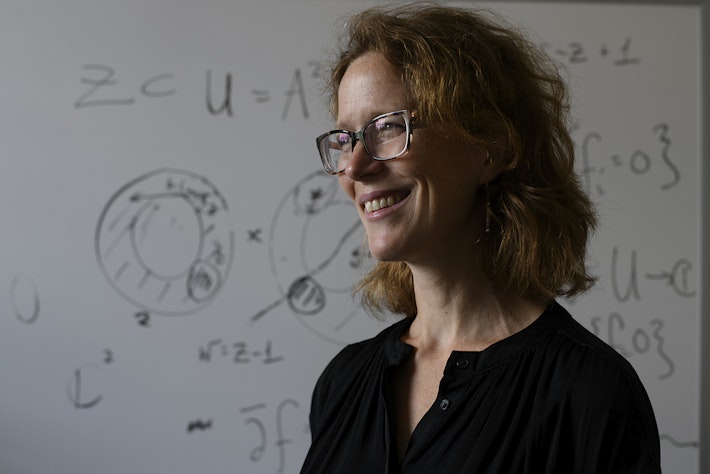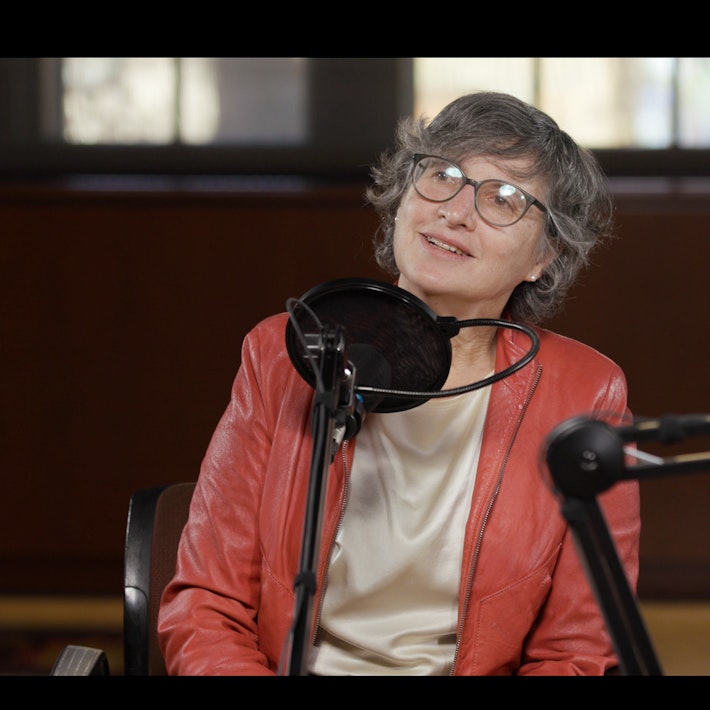A Moral Sense of Citizenship
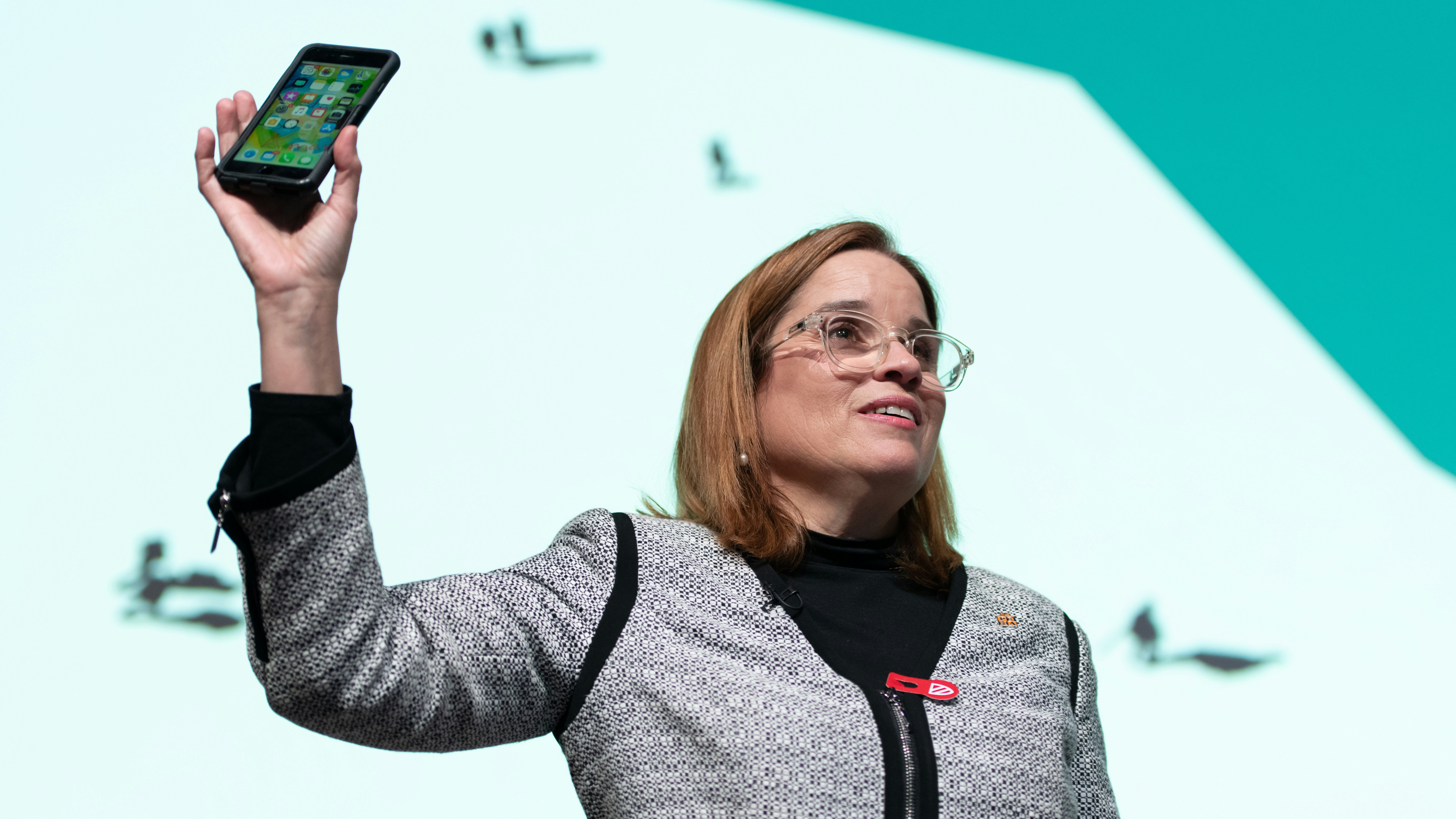
San Juan Mayor Carmen Yulín Cruz recalls harsh lessons of Hurricane Maria at Radcliffe conference.
THE POWER OF citizenship was on Carmen Yulín Cruz’s mind when she visited the Radcliffe Institute in March, but with a caveat: that power has limits.
“Citizenship does not give you equality,” the mayor of San Juan, Puerto Rico, told the audience at “Unsettled Citizens,” where speakers and panels examined shifting and sometimes competing ideas about citizenship in a time of global migration. Delivering the keynote at the daylong conference, Cruz made an impassioned plea for unity and fairness.
“Equality has to be fought for,” she said. “It has to be nurtured. It has to be taken care of every day.”
Cruz, who in September 2017 gained national prominence for her criticism of the US government’s response to the widespread devastation of Hurricane Maria in Puerto Rico, questioned the nature of citizenship as a political institution, focusing on themes of humanity and belonging. Emphasizing moral over legal imperatives, she called for “global citizenship” and said, “We should be tearing down walls, not building them.”
In explaining her views, Cruz pointed to what she and others saw as the Trump administration’s slow and inadequate response to Maria. When the Category 4 hurricane devastated the island, a US territory, many Puerto Ricans relied on the bonds of citizenship, looking to the federal government for aid, Cruz recalled.
“Don’t worry, Mayor,” they told her. “They will come.”
Months later, as concerns over food, water, and electricity persisted, even her most trusting constituents began to lose faith, she said.
Counting the casualties from disruptions in health care and shelter, Cruz noted a total of 3,000 dead from Maria and its effects. Many of those fatalities could have been avoided with a faster, fuller response, she said, laying blame with President Trump.
“Our lives did not matter to him,” she said. “Being a citizen was not enough.”
The hurricane and its aftermath highlighted an ongoing debate about Puerto Rico’s political status, with citizens divided in their support for statehood or independence. The argument for statehood gained momentum in the wake of Maria, with its supporters contending that gaps in recovery aid were related to Puerto Ricans’ being disenfranchised in national elections.
Cruz sees a strong case from “a strictly civil rights” perspective for giving Puerto Ricans a say in presidential elections. However, she opposes statehood, instead backing a compact of free association, which in essence would retain the island’s status as a territory.
“I am an American citizen, but I identify myself as Puerto Rican, so my nation is Puerto Rico,” said Cruz, who has entered the 2020 governor’s race as a member of the Popular Democratic Party. Ultimately, even as she argued for the primacy of ties that transcend citizenship, she also championed citizenship’s ideals, notably the right to self-determination.
“If the majority of people want free association,” she said, “let it be so. If people want independence, let it be so. If people want statehood, let it be so. Let it be so—but let us decide.”
The day’s first panel explored how economics can define political status. K. Sabeel Rahman ’05, JD ’12, PhD ’13, president of the public policy organization Demos and an associate professor at Brooklyn Law School, addressed the practical implications of wealth and poverty. US economic policy has been “weaponized,” he said, citing disparities in opportunity that grow out of educational disparities, dividing society into a permanent underclass and a permanent ruling elite.
“If you functionally can’t access economic opportunity, if you’re segregated from the center of the city, you’re not really a member of the full polity,” he said.
Economic citizenship has another meaning for the Alaska Native Regional Corporations. Rosita Kaaháni Worl, president of the Sealaska Heritage Institute and a member of the Tlingit tribe, explained how native Alaskans, in an effort to take control of their lands, established tribal corporations through the Alaska Native Claims Settlement in 1971. This move transferred title to 330 million acres to 13 regional corporations and more than 200 village corporations, at the time the largest lands claim in American history. It also established Alaskan natives as an ethnic group.
But corporate citizenship has had unforeseen consequences, Worl said. The requirement that the corporations show a profit has resulted in difficult decisions about the use and development of wild spaces, for example. In addition, tribal membership—and thus full membership in the corporations—is defined by blood, with only those able to prove one-quarter Alaskan native blood eligible for the designation. This has created heartbreaking situations in which tribal citizens have seen their children and grandchildren disenfranchised, she said.
The “white ethno-state” was the focus of a presentation later in the day. A “territorial reimagining” based on a mythical past, this idea is at the core of alt-right hate groups, explained Alexandra Minna Stern of the University of Michigan. She also noted how the language of white nationalism—“deportation, homelands, and recalling birthright citizenship”—has entered mainstream political discussions.
After additional speakers discussed global migration and the plight of refugees and disenfranchised workers, Daniel Carpenter AM ’02, RI ’08, faculty director of Radcliffe’s social sciences program and the Allie S. Freed Professor of Government in the Faculty of Arts and Sciences, offered his takeaway from the conference.
“Maybe we need a more encompassing vision of citizenship,” he said. “Maybe ‘unsettling’ it is exactly what we need to save it.”
Clea Simon is a freelance writer whose recent work includes the suspense novel World Enough (Severn House Publishers, 2017).
